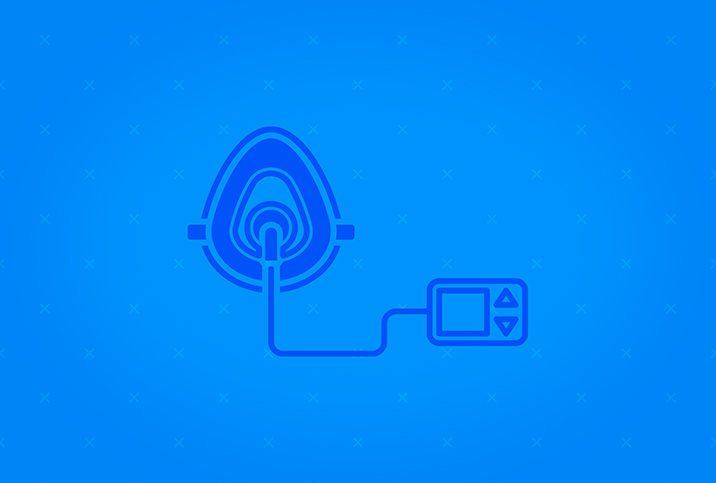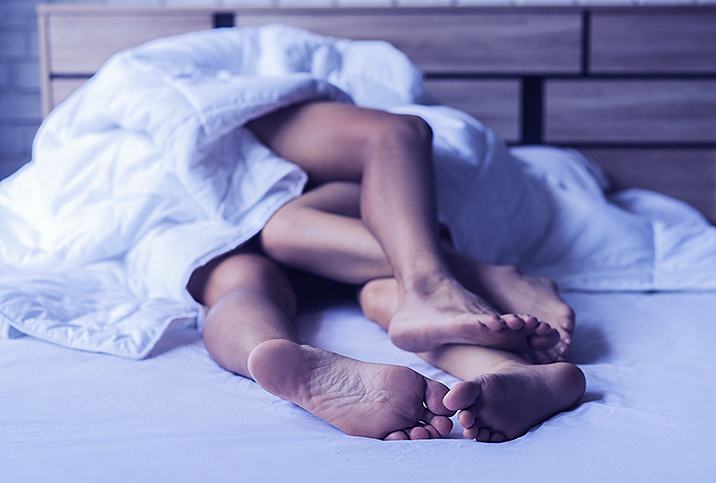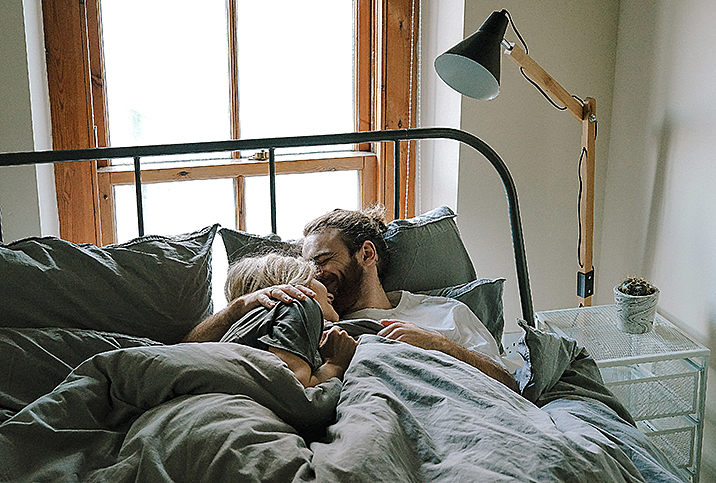Tips for People With Sleep Apnea (and the People Sleeping Beside Them)

Sleep apnea affects 2 to 9 percent of American adults, though many believe the number to be much higher, the belief being that many cases go undiagnosed.
The condition is a dangerous disorder in which breathing starts and stops while an individual is asleep, and it can affect anyone.
Defining sleep apnea
There are three primary types of sleep apnea: obstructive, central and complex.
Obstructive sleep apnea (OSA) is the most common, and occurs when throat muscles relax and block the airway. Central sleep apnea (CSA) is neurological in origin, the result of the brain not sending proper signals to muscles responsible for breathing. Complex sleep apnea syndrome, or mixed sleep apnea, is the diagnosis for an individual who has both OSA and CSA.
In all types, the brain recognizes that the body isn't getting oxygen and briefly wakes up the sleeper for correction. This can happen hundreds of times per night, even though sufferers typically don't remember each waking.
Symptoms of each type are similar:
- Episodes of cessation of breathing
- Loud snoring
- Gasping, snorting or choking for air
- Waking up with dry mouth and headache
- Excessive daytime sleepiness
- Trouble falling asleep (insomnia)
- Difficulty concentrating during the day
- Memory problems
- Irritability
Impact on well-being
Obstructive sleep apnea has multiple risk factors, including being overweight, having a greater neck circumference and/or a narrow airway, being male, being older, having a family history of OSA, abusing substances such as alcohol, sedatives and tobacco, and various medical conditions, such as congestive heart failure, hyperthyroidism, high blood pressure and type 2 diabetes.
Risk factors for CSA are less related to lifestyle: being older and male; history of stroke, kidney failure, Parkinson's disease or narcotic use; illness or trauma affecting the brain stem; and heart disorders.
Please note that sleep apnea can be dangerous. Waking regularly can cause sleep deprivation and related symptoms, and decreased blood oxygen levels increase the risk for high blood pressure, heart problems, stroke, type 2 diabetes and metabolic syndrome.
Sleep apnea impacts life and well-being. Going through days exhausted and struggling to concentrate is a challenge. You may experience decreased performance and productivity, and struggle in work, social and/or home life. Children and teenagers with sleep apnea may face academic underachievement. Studies have linked sleep apnea to mental health problems.
Diagnosis and treatments
To officially diagnose sleep apnea, doctors will conduct a sleep study that monitors breathing and body conditions overnight. Mild cases of OSA are often treated solely with lifestyle changes: weight loss, exercise, and cessation of smoking, drinking and drugs. Sleeping on your side or stomach may help. Getting allergies under control is also important.
Certain devices, such as a continuous positive airway pressure (CPAP) machine, can help keep your airway open during sleep. An oral appliance fitted by a dentist can also keep the airway open. Adaptive servo-ventilation (ASV) may be an option for some individuals.
There are also surgeries to correct sleep apnea: tissue removal and/or shrinkage, jaw repositioning, implants and nerve stimulation.
Coping with sleep apnea
Educate yourself about sleep apnea and the methods to reduce its severity. Work hard on doctor-recommended lifestyle modifications. Some people find a humidifier helpful in preventing respiratory irritation and dry mouth/throat in the morning.
It's vital to create a support system, whether that be family, friends, a partner or one of the many online support groups. Remember that sleep apnea is a common condition—you can find a lot of information by plugging in with fellow sufferers and learning from their experiences.
Living with someone who has sleep apnea
If you live with someone suffering from sleep apnea, get in the loop about their treatment and lifestyle recommendations.
The CPAP machine is very frustrating for many patients (and probably for you, too), but be patient and help out where you can; perhaps you should try on the mask so you know how it feels. Encourage lifestyle modifications and device use, and be supportive.
Remember, too, to take good care of your own health. If the snoring or gasping you're hearing throughout the night is keeping you up, this will impact your mental health and productivity, as well as place a strain on your relationship. A relaxing noise machine or a noisemaker app on your phone may help minimize the sound of the CPAP.

















